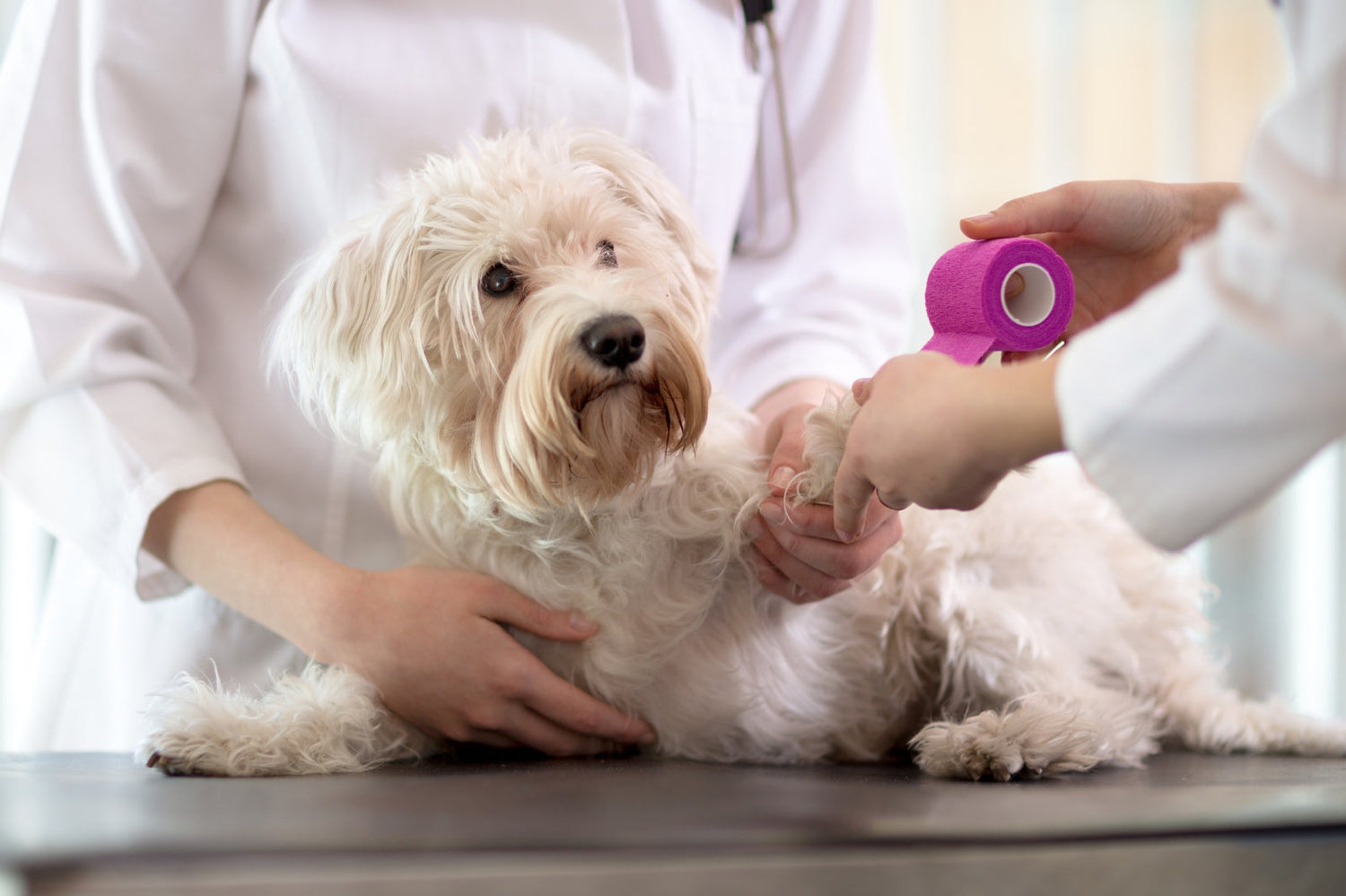Recognising when your dog is in discomfort can make all the difference in their health and happiness. While it’s not always easy to tell, paying attention to subtle signs can help you spot pain early and ensure your dog gets the care they need.
What causes pain in dogs?
Injury
Accidents, rough play or a simple slip can lead to injury, causing pain that might not always be immediately obvious. Sprains, fractures or strains can make your dog act differently and they may try to hide their discomfort.
Arthritis
As dogs age, joint issues like arthritis can cause pain. It’s especially common in larger breeds, but all dogs can experience joint discomfort. If your dog seems slower to move or reluctant to jump, it could be due to arthritic pain.
Read more “How to tell if your dog has arthritis” →
Dental Problems
Tooth decay, gum disease or broken teeth can make chewing uncomfortable. If your dog has trouble eating or seems to favour one side of their mouth, it could be a sign of dental pain.
Infections
Whether it’s an ear infection, urinary tract infection or a skin infection, pain can accompany these health issues. If your dog is shaking their head, licking excessively or appears to be straining when they urinate, they may be experiencing pain from an infection.
Internal Issues
Gastrointestinal problems, pancreatitis or even more serious conditions like kidney disease or cancer can cause internal pain. Dogs with internal issues may show signs like vomiting, loss of appetite or changes in their behaviour.
What are the signs of pain in dogs?
Behavioural Changes
Dogs are experts at hiding their pain, but if you notice a sudden change in behaviour, it could be a clue. A dog in pain may become more withdrawn or anxious, avoid being touched or act more irritable than usual. They might also seek more attention or become clingier, depending on how they cope with discomfort.
Changes in Movement
Limping, stiffness or reluctance to walk up stairs or jump on furniture are all common signs that your dog might be in pain. If your dog is suddenly limping or struggling to move, there could be an injury or joint issue that needs attention.
Changes in Appetite
Pain often affects a dog’s appetite. If your dog isn’t eating or drinking as much as usual, it could be due to pain, especially if it’s related to an internal issue. In some cases, a dog experiencing pain may also exhibit excessive drooling or a reluctance to chew.
Vocalising
Some dogs will vocalise when they’re in pain, whether it’s through whining, growling or barking more than usual. While occasional barking is normal, consistent or sudden vocalisations could indicate that something is wrong.
Guarding or Avoiding Touch
If your dog is suddenly sensitive to touch or if they avoid being petted in certain areas, it’s a strong indicator of pain. They may flinch, whimper or even snap if touched in a painful spot. Guarding behaviour, where they protect a specific area of their body, is also common.
How can you help your dog if they’re in pain?
The first step is always to consult with your vet. They’ll be able to pinpoint the cause of the pain and suggest appropriate treatments, whether that’s pain relief medication, physical therapy or other interventions.
Prevention: How to keep your dog pain-free
Keeping your dog pain-free begins with regular vet check-ups, which help catch issues early and make managing discomfort much easier. A balanced diet and regular exercise are key to overall health, but the right supplements can provide valuable extra support.
Joint supplements with Glucosamine & Chondroitin can ease stiffness and support mobility. To prevent future dental problems, it’s important to stay on top of oral hygiene. If your dog isn’t a fan of brushing, HoliPaw Dog Teeth Cleaning Paste offers an easy, no-brush solution. For gastrointestinal issues that could lead to internal pain, supplements containing Prebiotics and Probiotics are a great choice to support gut health. And for dogs prone to ear infections, a gentle ear cleaner like HoliPaw Clean Ears with Lavender Oil can help maintain ear health and lower the risk of infections.
By combining proactive vet care with supplements tailored to your dog’s specific needs, you can help prevent pain before it starts and keep your furry friend feeling their best.




Leave a comment
This site is protected by hCaptcha and the hCaptcha Privacy Policy and Terms of Service apply.